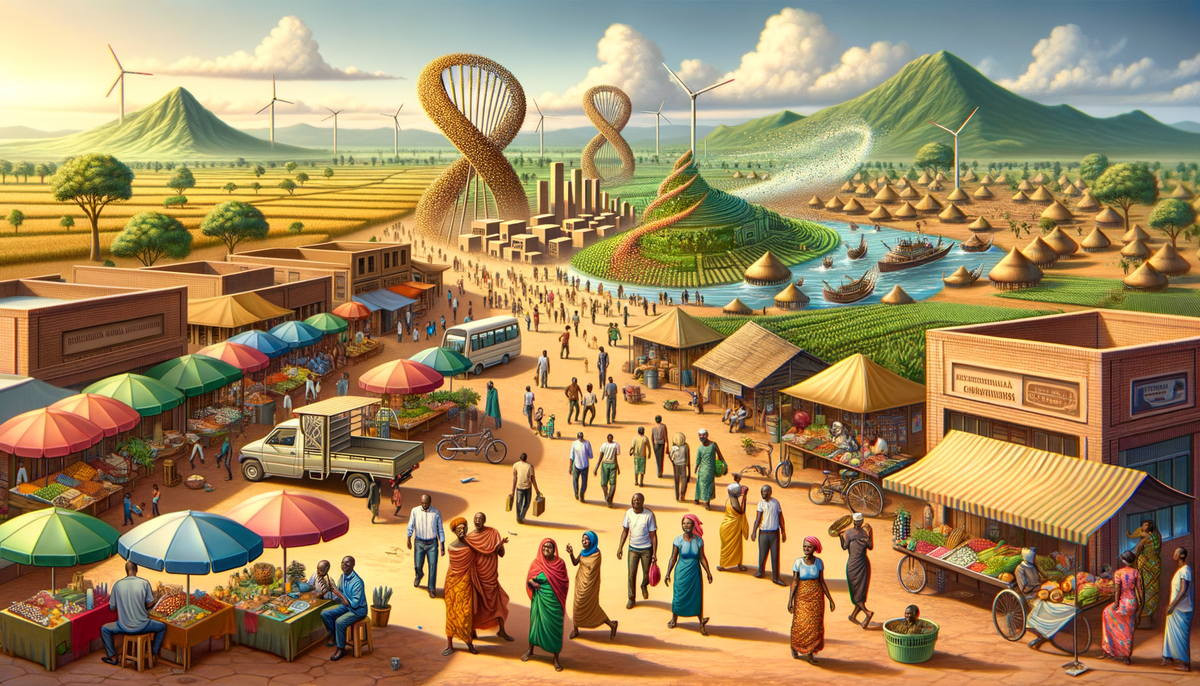Burkina Faso: Navigating Political Turbulence and Economic Challenges
Dive into the political and economic dynamics shaping Burkina Faso amidst ongoing challenges and transformative changes.

Burkina Faso: Navigating Political Turbulence and Economic Challenges
In the heart of West Africa lies Burkina Faso, a nation intricately woven with historical resilience and current socio-political dynamics. As the world watches closely, Burkina Faso, meaning the 'Land of Incorruptible People,' stands at a crossroads marked by its recent explorations into new governance amidst ongoing challenges.
Understanding the Political Landscape
The past years have been tumultuous for Burkina Faso, a nation that has seen two significant coups in 2022. The overthrow of President Roch Marc Christian Kaboré in January 2022 marked the beginning of a military-led restructuring. Captain Ibrahim Traoré now leads as the transitional head, with Rimtalba Jean Emmanuel Ouedraogo as prime minister. This shift to a military governance structure follows the fall of constitutional order, placing significant power in military hands (RFI, Jeune Afrique).
Demographics and Society
With an estimated population of 24 million, Burkina Faso's cultural tapestry is as rich as its history. Over 60 indigenous languages add depth to its societal structure, although Mooré remains the most spoken. More than half of the population practices Islam, while a significant portion adheres to Christianity, contributing to the diverse religious landscape (Burkina 24).
Economic Challenges and Opportunities
The economic landscape of Burkina Faso is both challenging and ripe with potential. The nation, predominantly reliant on agriculture and mining, is still categorized among the least developed countries, with a GDP of $16.2 billion as of 2022. Gold remains the primary export, though the wealth in natural resources like manganese and copper offers avenues for economic diversification. However, subsistence farming is still the lifeblood for most, highlighting a critical need for agricultural innovations and investment.
Geopolitical and Security Concerns
Regional security remains a pressing issue as Burkina Faso grapples with threats from militant groups affiliated with IS and al-Qaeda. This ongoing insecurity has further exacerbated humanitarian concerns, displacing over a million people. Recent political changes, including demoting French from official status and shifting alliances towards regional cooperation with the Alliance of Sahel States, indicate a strategic realignment (RFI).
Societal Resilience and Cultural Heritage
Despite facing ongoing challenges, Burkina Faso takes pride in its vibrant traditions. Known for its rich music and art, the country's cultural fabric adds a unique element to its identity on the global stage. This orthodoxy is celebrated worldwide, fostering a sense of unity and cultural pride even amidst adversity.
Actionable Insights for Professionals
For professionals engaging with Burkina Faso, understanding the local socio-political climate is crucial. Building resilient economic models that align with Burkina Faso's core exports and agricultural strengths could lead to sustainable development. Additionally, fostering dialogues around regional security can provide a platform for strategic cooperation in addressing insurgencies.
Engage with Burkina Faso's Future
As Burkina Faso navigates its path forward, opportunities abound for collaborative international efforts. Companies specializing in security solutions, agricultural innovations, and cultural exchanges can play a pivotal role in bolstering Burkina Faso’s economic and social sectors. For a deeper engagement, we encourage readers to explore more about Burkina Faso’s rich history and evolving opportunities.




